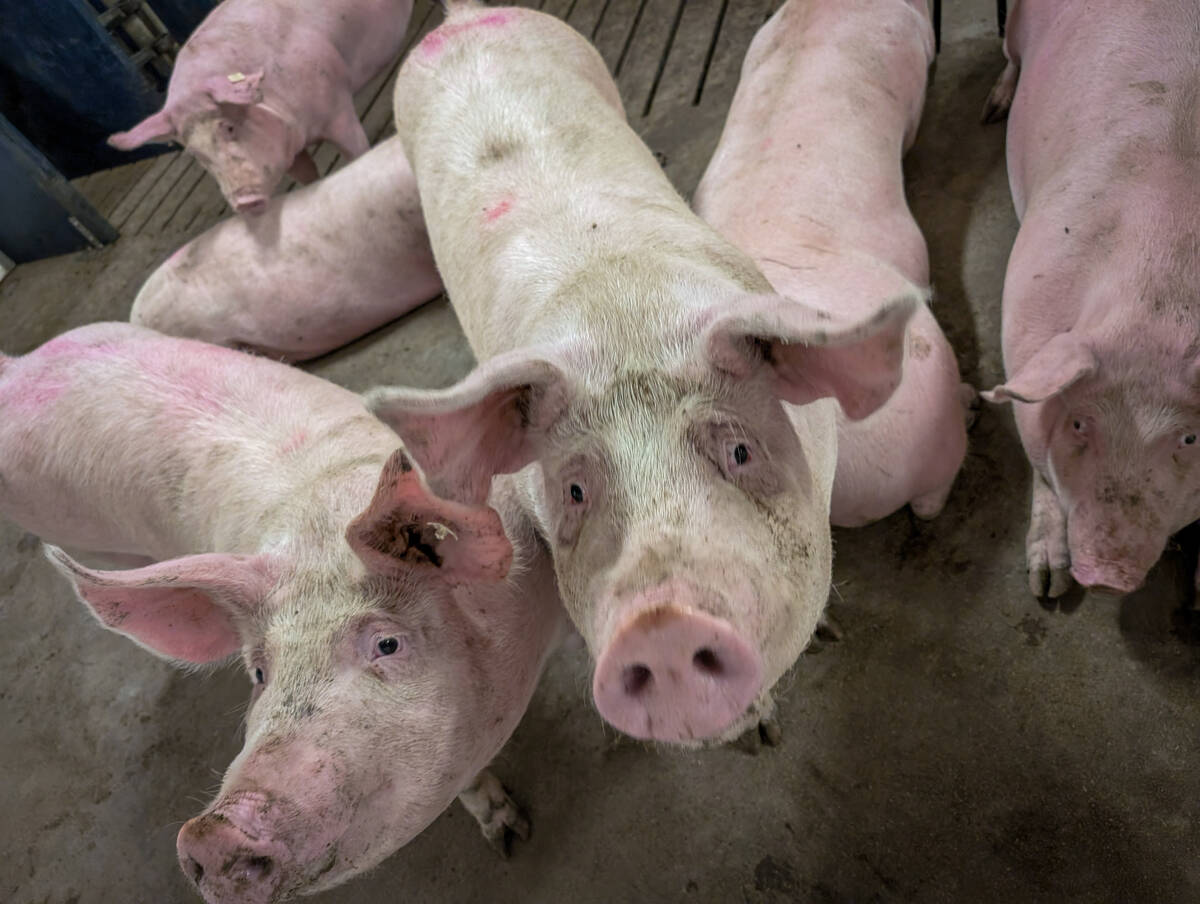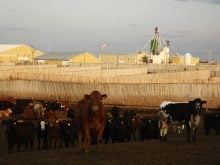RED DEER – Alberta farmers want the provincial government to share the wealth generated by record high energy revenues.
The province expects a revenue surplus of about $5 billion. Farmers attending the Wild Rose Agricultural Producers meeting in Red Deer want a share of that money as they struggle during a time of low commodity prices and high input costs.
Farmer Ron Leonhardt, of Drumheller, said Alberta can afford to help and should not wait for national safety net reform.
“You’re looking at two or three years before something can be done,” said Leonhardt.
Read Also

Pork sector targets sustainability
Manitoba Pork has a new guiding document, entitled Building a Sustainable Future, outlining its sustainability goals for the years to come.
“We can’t afford for our young farmers to wait two or three years.”
He wants to go to the province while it prepares for a spring election and demand help.
“We’ve got an opportunity to do something in Alberta and we should look after the people in Alberta first,” he said.
“Our province is rich. No other province is this rich. If we want some action for our young farmers, let’s do it now.”
Leonhardt pointed out that Quebec helps its farmers with top-up programs and commodity supports.
Several resolutions asked the province to reinstate fertilizer rebate programs to offset the high cost of nitrogen.
About 60 percent of the cost of manufacturing nitrogen fertilizer is related to the use of natural gas. At one time farmers received a rebate of $50 per tonne for nitrogen and $25 per tonne for phosphate fertilizers. The formula is already in place to calculate the rebates, said Robert Filkohazy.
Further, they feel the revenue from oil and gas royalties should be used to help farmers lower their costs for farm fuel, natural gas and electricity.
Many blamed deregulation within the electricity industry for soaring energy costs.
“What is happening in (the) electricity industry with deregulation is totally unacceptable. We cannot pass that extra cost onto anyone,” said John Zeinstra of Picture Butte.
Herman Schwenk, of Coronation, said the province created the problem by proceeding with deregulation when no one was sure how the system should work.
“We need to remind the provincial government in spades they were directly the cause of this particular problem,” he said.
Deregulation plans started seven years ago and came into effect Jan. 1. However, new power generation plants were not built to keep up with rising demand and Alberta has been forced to buy expensive electricity from other provinces.

















